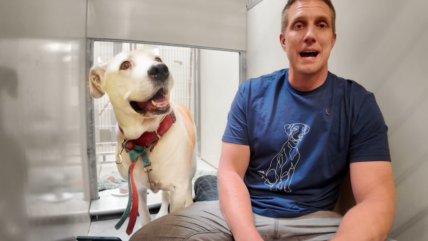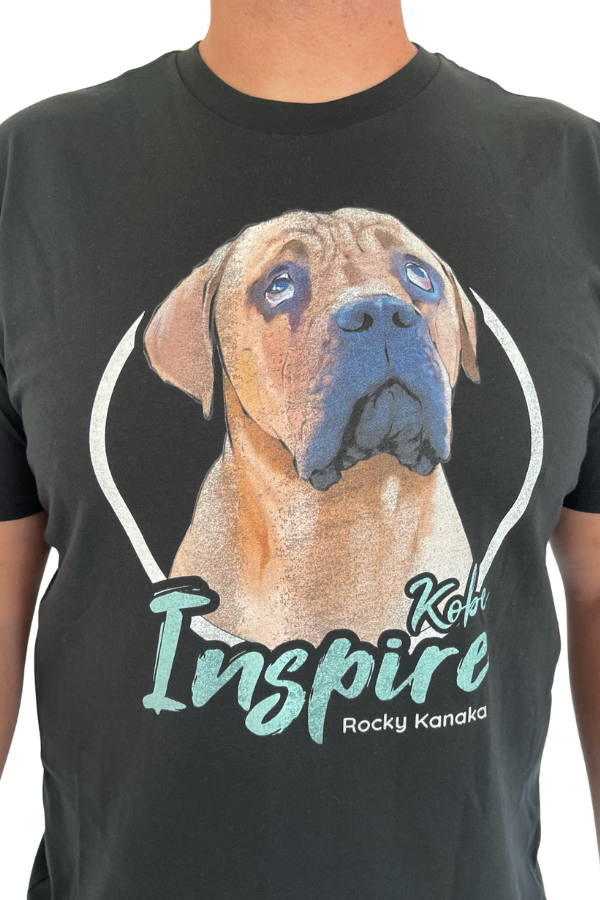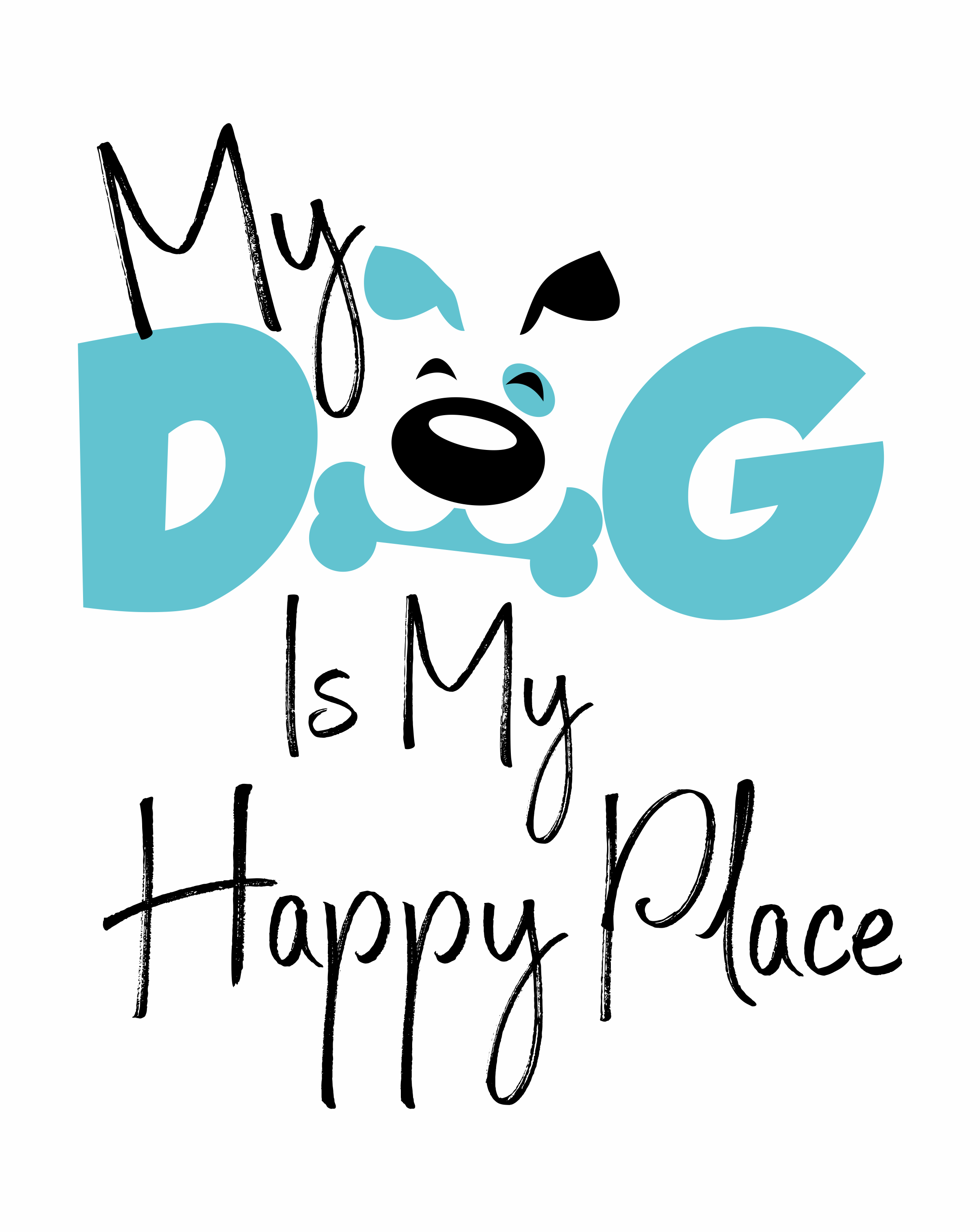Viral TikTok Shows The Symptoms of Canine Dementia—Learn What To Look For
Can dogs get Alzheimer’s or dementia? Unfortunately, aging dogs can experience cognitive decline—much like aging humans. As your dog ages, their likelihood of developing canine cognitive dysfunction (CCD) increases, and some studies suggest that up to a quarter of all dogs develop CCD by age 8. Don’t let that scare you!
Doggy dementia is something you can prepare ahead for, and a CCD diagnosis is not a death sentence. Canine cognitive decline can be serious, and may change some of your dog’s behaviors and social interactions. Still, there are lots of ways you can support your dog through their cognitive changes and give them a happy life during their golden years.
What is Canine Cognitive Dysfunction Syndrome?
So, can dogs get dementia? Sort of.
Canine cognitive dysfunction syndrome (CDS or CCD) is an age-related progressive medical condition that results in brain degeneration and cognitive decline. Often compared to Alzheimer’s or dementia in humans, CCD causes a dog’s brain to gradually lose capacity and affects both somatic and autonomic function.

This means that your dog might struggle with things they do consciously—like eating, drinking, and walking—but could also lose function of unconscious bodily functions like balance or digestion.
Symptoms & Signs of Dementia in Dogs
While dogs may begin developing CCD around age eight or nine, the early stages of dog dementia often go undetected. Pet owners might assume that their dog’s subtle behavioral changes are normal for older dogs—and sometimes the first signs of dementia in dogs can look quite normal. However, as canine cognitive dysfunction syndrome advances, the symptoms can become more disruptive to the dog’s quality of life.
In a viral video with more than 790,000 likes, the TikTok account @3CrazyHuskies shows what later stages of dog dementia look like. Mehkia, a senior Husky, has begun to wander at night, and is experiencing disturbances to his sleep-wake cycles. You can see that he looks confused and a little disoriented—he’s walking slowly and unsteadily, he is standing too close to objects as if he is stuck, and he frequently makes circles.
Disturbed sleeping patterns, getting stuck in corners or in front of objects, restlessness, and pacing are all common signs of CCD. Other dog dementia symptoms include:
- Uncharacteristic clinginess or standoffishness
- Increased daytime sleeping
- Agitation that increases as it gets later in the day (sundowners syndrome)
- Loss of interest in playing, going for walks, or taking treats
- Anxiety, especially to new things or people
- Uncharacteristic reactivity or aggression
- Forgetting commands and tricks
- House soiling—peeing or pooping indoors despite being previously potty trained
Dog dementia symptoms can become so serious that your vet may recommend euthanasia. It can be very difficult for pet owners to witness dementia in dogs, when to euthanize can be even more difficult. I recommend you consult with your veterinarian as soon as you suspect your dog could be showing signs of cognitive dysfunction syndrome for advice, guidance, and support throughout your journey.
Don’t assume your dog has canine dementia before confirming with your vet. You can’t just take a “does my dog have dementia” quiz to have your dog diagnosed. Your veterinarian can help you determine whether your dog actually has CCD, or is experiencing cognitive issues because of a different medical condition.
What is Sundowners Syndrome in Dogs?

Sundowners syndrome is the name of a variety of sleep-wake cycle disturbance common in dogs with canine dementia. According to Dr. Brad Hinsperger, B.Sc, DVM from Kingsdale Animal Hospital in Kitchener, Ontario, sundowners syndrome dogs experience a “worsening of symptoms in the late afternoon, evening, and nighttime hours…dogs with sundowner’s (and often dogs with dementia more broadly) may become disoriented, restless, vocal, and have severely disrupted sleep patterns.”
Learning how to calm a dog with dementia at night can feel like an uphill battle, but the one thing you can always do is keep yourself calm. Playing calming music, speaking in soft tones, and being patient with your dog will help to keep both of you from getting more upset.
One of the most common recommendations for reducing sundowning behaviors is to give your senior dog plenty of mentally stimulating activity during the day. Even if they can’t go for long walks or don’t want to play, there are still ways to get your dog’s brain moving to burn off some energy before the nighttime.
What Causes Doggy Dementia?

Neurons—or brain cells—begin to decay naturally during the aging process. Damaged or unstable neurons lose function, reducing your dog’s cognitive abilities. While neurological decline is natural for all aging dogs, other aging factors can increase the rate and severity, putting the dog at risk for dementia.
For example, some aging dogs can experience a build-up of beta-amyloid—a protein that creates plaque on the brain and disrupts communication between neurons. Dogs with beta-amyloid buildup may also have decreased blood flow to the brain, creating more risk for neuron death.
Canine cognitive dysfunction syndrome—or dog dementia—has no known cure, but there are ways you can make life more comfortable for your dog and more manageable for your family members.
Caring for Dogs with CCD: Treatment Options for Dog Dementia
While there is no cure for dementia in dogs, treatment options are available to support your dog and potentially slow the advancement of the disease. Canine cognitive dysfunction cannot be reversed or stopped, but targeted treatment options can be used to potentially slow or improve cognitive decline in dogs.
Dietary Needs of Dogs with Dementia

Vets and canine nutritionists approach dietary recommendations for dogs with dementia from two angles. First, they account for the nutritional needs of aging dogs in general, then they add the additional needs of a dog in cognitive decline. The best foods for senior dogs are often formulated with many of the key nutrients for dogs with dementia including but not limited to:
- Antioxidants
- B Vitamins
- DHA
- EPA
- L-carnitine
- Omega-3 fatty acids
- Phosphatidylserine
- Vitamin E
With the occurrence of dog dementia drinking water can become more difficult for your canine friend. Dogs may struggle physically to drink water, some may forget where their bowl is, and others may forget to hydrate altogether. Adding water and other hydrating ingredients like bone broth to your senior dog’s food can help them stay hydrated if they aren’t drinking enough.
Pharmaceutical & Medicinal Treatment for Canine Dementia

After consulting with your veterinarian and allowing them to examine your dog, dementia medication or supplements may be recommended as part of their treatment plan.
Currently, selegiline is the only approved and prescribed pharmaceutical treatment option for dogs with CCD. Selegiline works by increasing dopamine in the brain and protects neurons from deterioration. Dopamine helps to stimulate activity in the brain, but dogs with cognitive dysfunction syndrome often have a deficit of this chemical.
Some supplements commonly recommended for dogs with dementia include antioxidant blends, supplements to support dopamine production, and products for nervous system support.
Never give your pet dog dementia supplements or medications without consulting with a veterinarian.
At Home Treatment for Dogs with Dementia
If you don’t already, it’s important to prioritize gentle playing, low-impact exercise, and mental stimulation during the day with your dog with dementia. Daytime stimulation can help to keep their brain active, and reduce symptoms of sundowning in the evening.
Avoid moving furniture or adding new items to your home to help your dog feel confident in their space. New items are easier to forget than items you’ve had for a long time, so try to keep their space the same.
If your dog is unstable on their feet or easily gets lost, block off unsafe areas of the home using a baby gate. Stairs can be a hazard for senior dogs, but especially for dogs in cognitive decline. Similarly, make sure their outdoor environment is secure so they can’t wander off, or get stuck under a porch, shed, or house.







